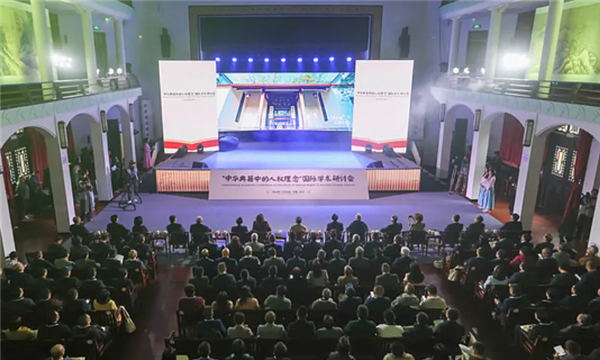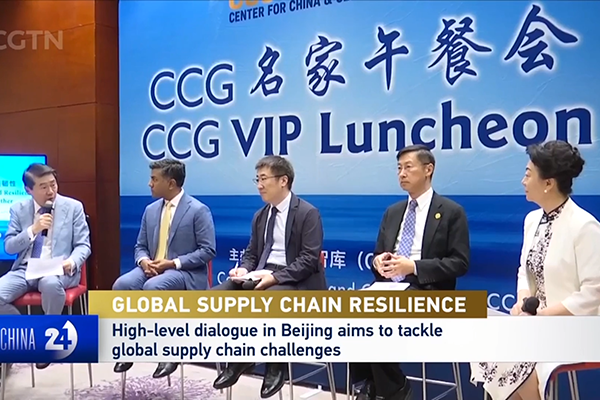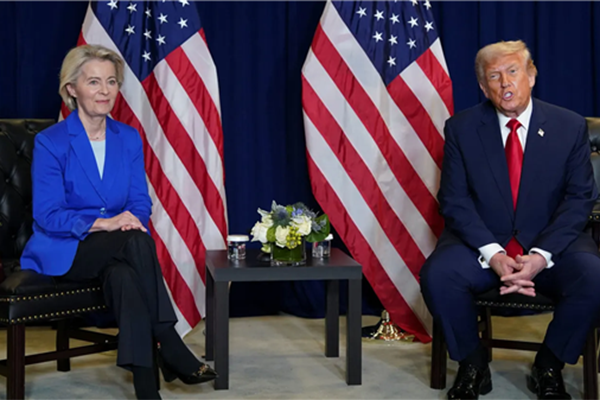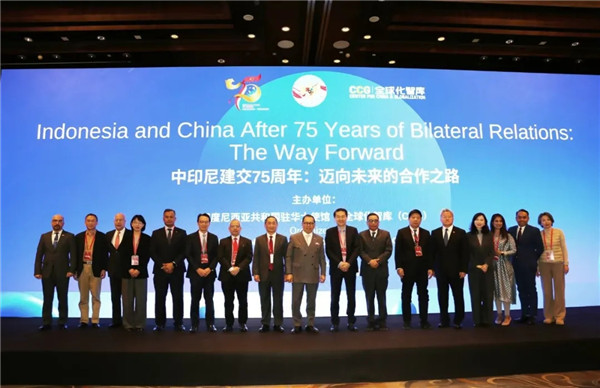International scholars exchange views on human rights from Chinese history
November 22 , 2024 More than 200 scholars, officials and representatives from over a dozen countries attend the International Academic Conference on the Ideas of Human Rights in Ancient Chinese Classics to share their perspectives on human rights on November 20, 2024. Photo: VCG
More than 200 scholars, officials and representatives from over a dozen countries attend the International Academic Conference on the Ideas of Human Rights in Ancient Chinese Classics to share their perspectives on human rights on November 20, 2024. Photo: VCG
Editor’s Note:
An international academic conference on the ideas of human rights in ancient Chinese classics was hosted by the China Society for Human Rights Studies, the Publicity Department of the Communist Party of China Hunan Provincial Committee and Hunan University at the historic Yuelu Academy in Changsha, Central China’s Hunan Province on Wednesday. More than 200 scholars, officials and representatives from think tanks from China and several countries, including the US, Canada, Italy, Japan and Pakistan, attended the event and shared their perspectives on human rights.
The Global Times extracted key points from scholars’ views on the human rights concepts embedded in traditional Chinese culture, the significant achievements China has made in human rights endeavors, and the differences in human rights perspectives between the East and the West.
Zamir Awan, a non-resident fellow with the Center for China and Globalization(CCG) and a sinologist at the National University of Sciences and Technology
The Chinese approach to human rights is deeply rooted in its unique political ideology, cultural heritage and historical context. China places a strong emphasis on collective rights over individual rights, prioritizing economic development, social stability and national sovereignty as essential components of its human rights philosophy. This approach is shaped by the belief that development is a fundamental human right, and without a stable and prosperous society, the enjoyment of other rights becomes secondary or unattainable.
China advocates for a pluralistic view of human rights, asserting that each country has the right to interpret human rights in a way that aligns with its cultural values, historical experience and developmental priorities.
China’s efforts in promoting South-South cooperation, particularly through initiatives like the Belt and Road Initiative (BRI), are framed as contributions to global human rights by fostering development, reducing inequality and creating opportunities for shared prosperity among developing nations.
China’s success in lifting millions out of poverty and advancing economic growth positions it as a key player in global human rights discourse, promoting a view that the pursuit of collective prosperity is an essential pathway to realizing human dignity for all.
A critical challenge to human rights is the political use of human rights by certain powers, particularly in the Western world, as a tool for advancing geopolitical interests. Human rights issues are often highlighted selectively, targeting rival nations while overlooking violations committed by allied countries.
For instance, the US frequently publishes reports criticizing the human rights records of countries such as China, Russia, North Korea and Cuba, portraying them as violators of fundamental rights. At the same time, countries allied with the US, such as Israel and India, despite having documented records of human rights violations, receive far less criticism. This selective approach raises concerns about double standards in the global human rights discourse.
Nations that oppose Western political agendas are often labeled as human rights violators, while those aligned with Western powers are depicted more favorably.
This politicization undermines the credibility of international human rights advocacy and creates a perception that human rights are used as a strategic tool to weaken geopolitical rivals rather than as a sincere effort to uphold human dignity.
Peter Hediger, a Swiss sinologist, historian and international security policy expert
The creators of the Universal Declaration of Human Rights (UDHR) have claimed that the Declaration is derived from ideas of the American and French Revolution in the 18th century. The Western powers still pretend to agree with this.
However, this view is incomplete, biased and erroneous. In various Chinese classics, written hundreds of years before the American and French revolutions, many corresponding ideas can be found which focus on the well-being of the people. It is the merit of the current Chinese leadership to rediscover and disseminate this fact.
In the course of history, China has accumulated a wealth of wisdom and ideas of good governance. Many of these thoughts may have occurred under a different label, but their contents are identical or close to ideas promulgated in the UDHR. They did not come in any judicial framework of laws, but were addressed to the rulers as binding moral obligation.
The implementation of the UDHR on a global scale relies on single member states, but here comes a dilemma. The linkage between the UDHR and the sovereignty of nations is an area full of traps and mines.
Apart from social differences and discrepancies among and within member states, the biggest inequality lies in the refusal of some influential powers to acknowledge and respect the different political systems of member states.
In today’s world, a sincere and efficient implementation of the UDHR is only possible in a multipolar world order, where each nation is taking responsibility and care of its particular needs. Therefore, the West splitting the existing world into two camps – those who practice democracy and those who do not – is too simplistic. China has proven that, other than blindly following the course set by Western democracies, it has found another valid way.
Christophe Peschoux, former section chief of the Office of the United Nations High Commissioner for Human Rights
“Human rights” has been used and misused in the past decades that I think it is useful to revisit this term. Human rights have been clouded and blurred by misconceptions, misunderstandings and above all by political manipulations to the point that they have come to be derided by many and held in suspicion.
They have been weaponized by powerful states – the US and the West – against other states to shame them, embarrass them, pressure them in attempts to weaken and destabilize them.
As the expression goes, don’t throw the baby out with the bathwater. To refresh our understanding of what their value is for us, not in the abstract, but practically in our lives, concrete and spiritual, we need to look beyond the legal norms, what underpins them: the principles and values. To clarify the meaning of these terms: life is a value (we value life, we cherish it because it is precious, the most precious that we have). “You should respect life” is a moral principle. A principle is a precept to guide our life.
I am convinced that the values that underpin modern human rights norms, as expressed in the UDHR, can be found in every society, culture and civilization. The best way to make them grow and flourish on Chinese fertile soil is not by adopting them uncritically from outside, nor by transplanting them mechanically or repeating them like an article of a new faith.
From Global Times, 2024-11-22






